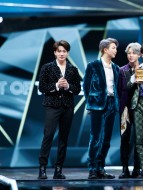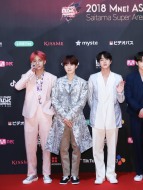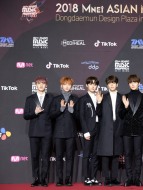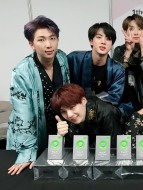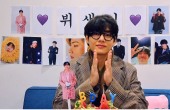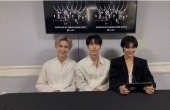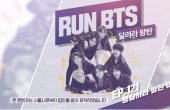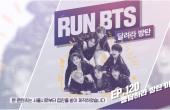BTS’s ‘strange’ popularity ... Why Korean media cares so much about what ‘foreign media’ thinks of K-pop
By Yoon Min-sik
BTS was the talk of the town on Korean media over the weekend.
No surprises there, but the fashion in which it made headlines was a little unusual -- it made headlines by making headlines in other countries. More specifically, it was by included in Rolling Stone’s “10 New Artists You Need To Know.”
Now, being mentioned in one of the most prominent music magazines in the world is of course a big deal, but the mainstream media in the country has been known to be swayed quite a bit by what people outside Korea think. We are not talking just about internet “news” websites -- which are glorified power bloggers to be brutally honest -- but well-known names like Yonhap, SBS, Chosun Ilbo and, of course, The Korea Herald tend to publish these “reaction stories” as well.
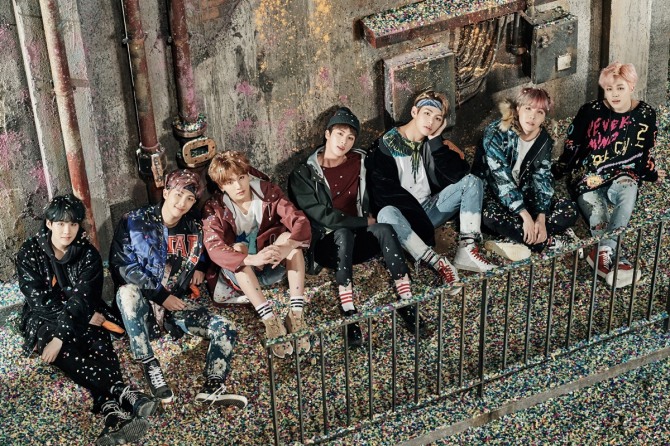 |
| (Big Hit Entertainment) |
This trend stems mostly from the obvious reason that the public is very interested in such stories. The Rolling Stone-BTS story was one of the most read K-pop stories Saturday, evident by the frequency the search term “BTS” appeared on Korea’s most popular search engine Naver.
Entertainment agencies are well aware of this tendency as well. Just a few hours after the original article had appeared on Rolling Stone, Big Hit Entertainment sent out a press release.
Such a case was also true when Japanese media was all over Twice’s successful debut in the country, with JYP Entertainment promptly pulling together reactions from across the mainstream media.
Koreans traditionally have been regarded as a nationalistic people. Whenever Koreans have made a huge impact overseas -- from Psy’s “Gangnam Style” to Kim Yu-na’s dominant run in figure skating -- there has been a particular focus on the fact that a Korean was able to accomplish such a feat.
Of course, people from nearly all countries around the world demonstrate a form of patriotism to some extent, but some have felt the phenomenon to be more prominent among Koreans.
This sentiment is apparent in the self-derogatory term “guk-ppong,” a combination of the Korean word for country (guk) and a Korean slang term for drugs (ppong). The notion is that some Koreans are so “high” upon the accomplishments of their countrymen or women that they tend to disregard anything else.
A classic case of this was demonstrated in a now-famous online chat between soccer fans watching an English Premier League match in 2012.
During the online broadcast of a match between Everton FC and Manchester United -- for which Korean soccer legend Park Ji-sung was playing at the time -- a fan typed “Go Everton!” to which another disgruntled fan wrote “Please ... if you’re a Korean, just support Man U.”
Another example of nationalistic attitude gone to extreme lengths is that Korean reporters always ask about Psy, Kim Yu-na, Gangnam Style and other Korea-related issues in contexts that have nothing or little to do with the subject matter.
Perhaps a landmark case in the long list of most-out-of-place-question-in-history was when a Korean reporter at a 2012 US State Department press conference asked the spokeswoman an infamous question: “Do you know ‘Gangnam Style’?”
Culture critic Jung Yun-su, a professor at Hanshin University, attributes the nationalistic approach to the modernization process that took place after the country was liberated from Japan, immediately following World War II.
He said in an interview with local media that the modernization process in the country took place in the form of the state prompting the people to foster their body and mind in a direction the government saw fit.
“The government didn’t force this process; the individuals found that complying with the state’s needs allowed their survival,” he told Hankuk Ilbo.
But as demonstrated in the term gukppong, which hints at shame and self-criticism toward such a trend, a sense of excessive nationalism appears to lose ground in modern days, particularly among the younger generation.
The ridicule that the aforementioned case of an overenthusiastic Manchester fan and the “Gangnam Style” reporter face is an indicator that one can no longer easily appeal to the public’s tastes by slapping a nationalistic approach on the cover.
Times are definitely changing, but the recent cases of BTS and Twice still indicate the trend of “making headlines by having made headlines elsewhere” will stick around, at least for the time being.
By Yoon Min-sik (minsikyoon@heraldcorp.com)









